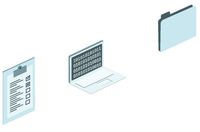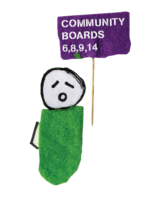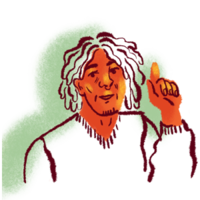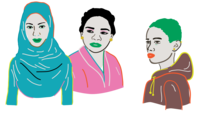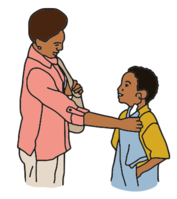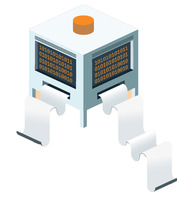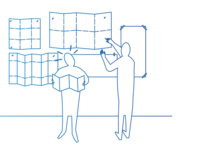Urban Investigations
‘Civically Engaged Project-Based Learning, Virtually’
The Reinvention Lab via Medium.com
October, 30, 2020
How the Center for Urban Pedagogy is pushing for more relevant, community-based learning in the age of Coronavirus and calls for racial justice.
‘NYC Teens Share How Criminal Justice System Impacts Their Communities’
Next City
October, 16, 2019
Rivera and Minns were two of the 11 students who participated in a summer employment program at the Red Hook Community Justice Center, the nation’s first multijurisdictional community court. The cohort worked with the Center for Urban Pedagogy, a nonprofit using design and art to explain complex social justice issues, to compose a booklet explaining how criminal conspiracy laws impact New York communities.
‘Teens look to get out the vote’
The Hunts Point Express
July, 5, 2017
The teens partnered with NYC Votes and the Center for Urban Pedagogy to create “Our Voice, Our Choice,” a 14-page guide they introduced at a June 29 roundtable at the Bronx Music Heritage Center in Soundview.
‘Bronx High Schoolers Explain How MTA Funding Works’
StreetsBlog NYC
September, 23, 2015
Monday night, the students presented a 12-minute video they made during a summer course with the Center for Urban Pedagogy (CUP). It explains everything from who appoints the MTA board to the size of the gap in the capital budget.
‘Investigating the Grade’
Materials for the Arts
August, 27, 2013
Students from Lyons Community School in Brooklyn and CUP teaching artist Leigh Davis worked together to examine the restaurant grading system in the city.
‘The Big Squeeze: Illustrating Micro-Unit Housing’
Urban Omnibus
June, 26, 2013
CUP teaching artist Chat Travieso worked with a small group of students to create a powerful tool to make the discussion of this new housing model accessible to a greater population.
‘Guest Lesson | Thinking Critically About Food in a Season of Plenty’
New York Times Learning Network
November, 13, 2012
[Students] interviewed experts from fields ranging from real estate to food distribution to urban planning. They summarized their findings in a booklet about food justice…
‘Are You Ready? An Illustrated Guide to Preparing for Disaster’
GOOD
October, 29, 2012
[The booklet] is a tool for individuals and community organizations who’d like to start thinking about community preparedness, what that might look like, and why it matters.
‘Funky Fresh Means Access to Healthy Food in the Bronx’
WBAI
October, 19, 2012
The visuals were so breathtaking… the kids [who took part in the project] learned a lot of new skill sets.
‘New York Art Book Fair: Books of Note’
Domus
October, 5, 2012
[Power Trip] explores the infrastructure and apparatus that keeps the lights on, and in so doing boils down a very complex topic in clear terms… affording the people involved an opportunity to (figuratively or literally) peer down some manholes and look at the city.
‘Bronx Bodegas for Beginners’
Curbed
March, 14, 2012
This documentary is a good primer on the bodega industry.
‘Where Does Your (Convenience Store) Food Come From?’
Gilt Taste
August, 31, 2011
These students take the opportunity to really explore how this little corner of the city works… and what results is one of the smartest, most nuanced, and most fun documents on the subject we’ve ever seen.

